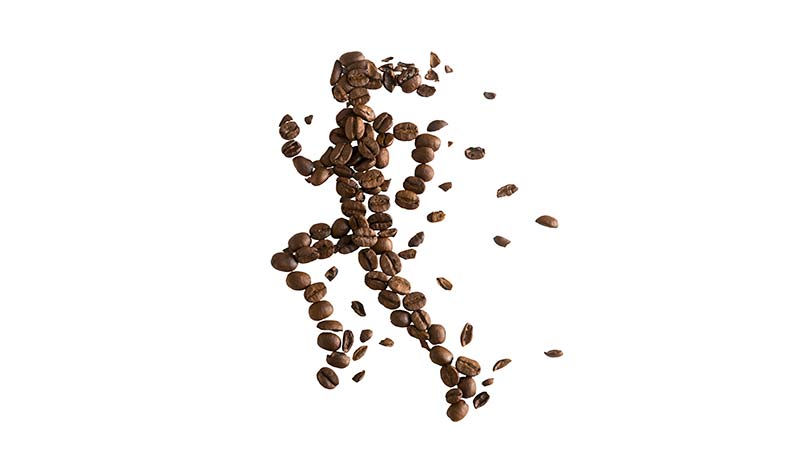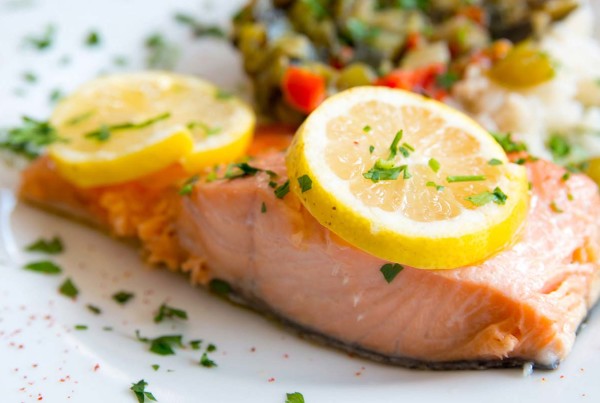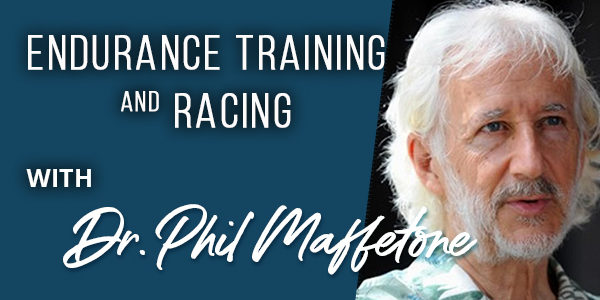
Yes! This delicious drink can potentially enhance physical performance, boost nutrition, and provide many other health benefits, including slowing the aging process.
I enjoy writing about coffee, especially over my first morning cup. This update adds to my other articles on coffee, caffeine and their many potential benefits (linked below).
The high caffeine content of coffee makes it one of the most popular psychoactive drugs in the world. It also may be the most popular — and legal — performance-enhancing substance among athletes and fitness enthusiasts.
Coffee’s fat-burning effects can help athletes go farther, faster. Even the caffeine from one cup can increase oxygen consumption, blood circulation, muscle function, and mitochondrial activity (fat-burners in our cells). The increased fat-burning conserves glycogen stores, and, despite claims, it won’t dehydrate you. In addition, caffeine can also help recovery
Add more fat, hold the sugar is my motto for great morning coffee, especially when you want a healthy breakfast drink like Dr. Phil’s Fat-Burning Coffee. It’s also the perfect companion for healthy high-fat (low-carb) eating, especially before a workout, or for other health benefits like increasing ketones.
Coffee contains a class of phytochemical compounds called methylxanthines that include caffeine. More than the buzz, coffee is a sensational sensory stimulation for the brain, beginning with thinking about it upon awakening, then the aroma, and finally the taste. While this is enough to love coffee, there’s more.
Adding healthy fat options to coffee not only improves taste, it can transform it into a great breakfast with a variety of health benefits. This morning I blended a whole egg, heavy cream and coconut oil for a delicious organic cappuccino-like addition to my strong French press brew.
The health benefits of coffee are many, including:
- Increased fat-burning (help improve endurance, reduce body fat and increase energy).
- Of particularly interest is coffee’s effect on genes helping to convert stored white fat to brown, further amplify fat-burning.
- Promotes brain function (improving many, perhaps all, aspects of brain activity).
- Raises ketones (as an additional energy source for the brain, and important for ketosis).
- Contains a variety of antioxidants, including caffeine (improving immunity, aging, disease prevention and reducing oxidative stress).
- Reduced risk of cardiovascular disease, liver and neurological conditions, cancer, and overall mortality; improved blood sugar control (and may help prevent diabetes).
While many meals and snacks, like exercise, promote oxidative stress, my fat-burning coffee may not. A new study (McAllister et al.) demonstrates that coffee with 28 grams of added fat not only increases fat-burning and ketones, reduces insulin and triglycerides, and raises HDL cholesterol — all great benefits associated with better fat-burning — it does not promote oxidative stress (which typical high-carb diets do).
This makes coffee a useful part of healthy eating — low carbohydrates and high fats, which further promotes reduced caloric needs, improved antioxidant status, longevity and aging; not to mention reducing excess body fat and chronic inflammation. It’s the polyphenol phytonutrients that help further protect fats after consumption and absorption. If you want even more nutrients, choose the cacao option, or a sprinkle of real cinnamon.
Considering the physiology, this coffee is a great pre-exercise or even pre-race meal for many people. At one time, high carb intakes were thought to be best for both of these situations, but the energy potential of fat-burning and its glycogen-sparing effect can be enormous. (For athletes, experiment during training to see what ingredients from the fat-burning coffee menu work best — shorter exercise times may not necessitate any additional ingredients with long events requiring more calories.)
As U.S. and other governmental guidelines now no longer have an upper limit on healthy fat consumption, studies still show that excessively high-fat meals, just like too much sugar or carbs, can increase bodywide oxidative stress and inflammation. A recent study (McAllister et al.) demonstrated this in meals containing 42 grams of fat. This is much higher than my fat-burning coffee recipe, and even higher than a four-egg, four slices of bacon breakfast or a fatty rib-eye steak dinner.
Depending on how you brew it, a typical cup of coffee may have 100-200 mg, more when stronger. (Black teas typically have a third less than that and green tea even less.) Decaf is a bit of a misnomer as it contains very small amounts of caffeine, but the beans still have some health effects, minus the big buzz (although some people still adversely react to that amount of caffeine).
But all these wonderful effects, and others, from a simple cup of coffee (or tea) have qualifications. First is that we can consume too much caffeine, as many know, with our limits based on the individual. Caffeine can impair gut function, rev the sympathetic nervous system too much, a problem for those with hypertension and poor sleep, effecting unhealthy people more.
Perhaps the worst coffee sin is not getting the fat-burning benefits. Here are two key caffeine connection caveats:
1. One sugar or two?
Just a spoonful of sugar, 4+ grams, can dampen, even negate some of those wonderful coffee benefits. Unfortunately, most people add more than that—the average U.S. drinker up to 3 teaspoons. Sure, you still may get a buzz from sweet coffee, but it may not last as long, be as effective and often have you craving more sweets and caffeine.
Starbuck’s Caramel Frappuccino Grande will put you over the top—sometimes for the day—with 59 grams of sugar or 14 teaspoons. A large McDonald’s mocha has a bit less at over 11 teaspoons of sugar.
Coffee accompaniments add sugar too, from bagels to donuts. Artificial sweeteners—natural or not—can do the same. Even small amounts of sweet taste can maintain a sweet tooth, making unsweetened coffee taste bitter.
2. The bitter truth
Taste is an important role in food choices. Once called a sweet-tooth, the taste of sugar is potent, changing the nerve-endings on our tongues called taste-buds. Once we taste sugar, over and over, that stimulation overpowers other tastes. In particular, we lose our taste for natural food flavors, including vegetables which have varying degrees of bitterness — coffee and tea too. When confronted by bitter foods many either avoid them, or, add sugar.
Getting to love the wonderful flavor of great coffee and tea, like all natural foods, is an important part of being healthier and more fit. OK, now I’m ready for a workout, then another full-fat cup!
More coffee LINKs.
- Dr. Phil’s Fat-Burning Coffee Menu.
- Video: Dr. Phil’s fat-burning coffee recipe.
- More on the science of caffeine and fat-burning
- Signs we’re burning body fat.
References
McAllister MJ, et al. Acute coffee ingestion with and without medium chain triglycerides decreases blood oxidative stress markers and increases ketone levels. Can J Physiol Pharmacol. 2019. doi: 10.1139/cjpp-2019-0458.
Poole R. Coffee consumption and health: umbrella review of meta-analyses of multiple health outcomes. BMJ. 2017;359:j5024. doi: 10.1136/bmj.j5024.
Velickovic K, et al. Caffeine exposure induces browning features in adipose tissue in vitro and in vivo. 2019. Scientific Reports 9. https://www.nature.com/articles/s41598-019-45540-1








